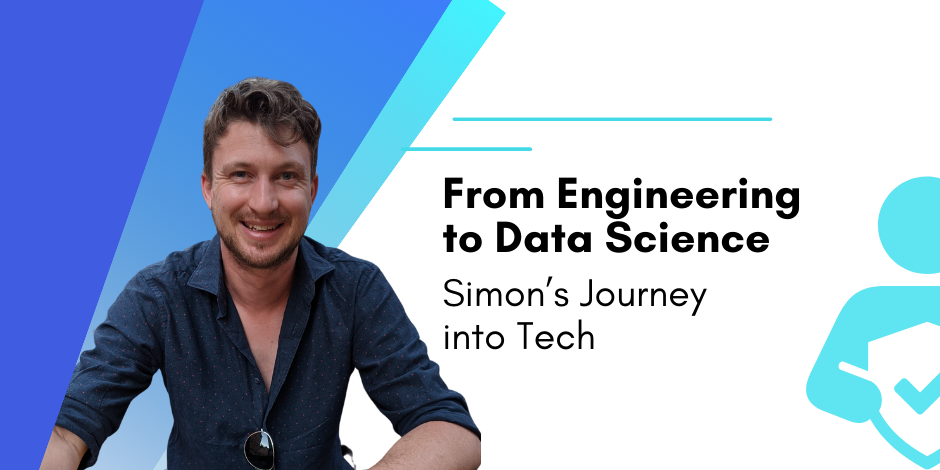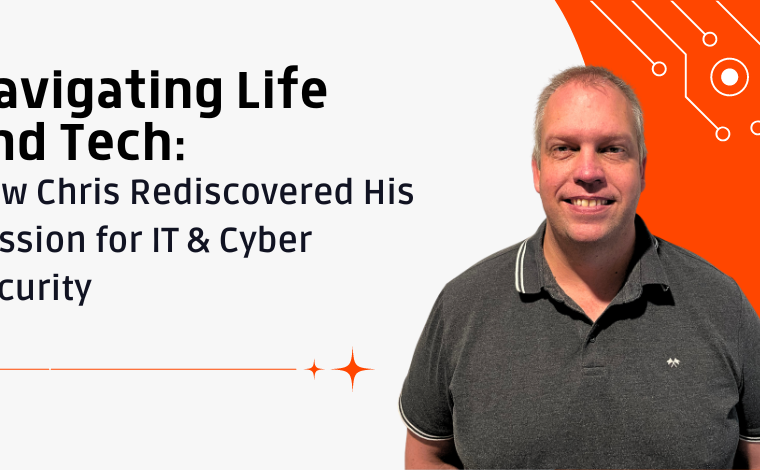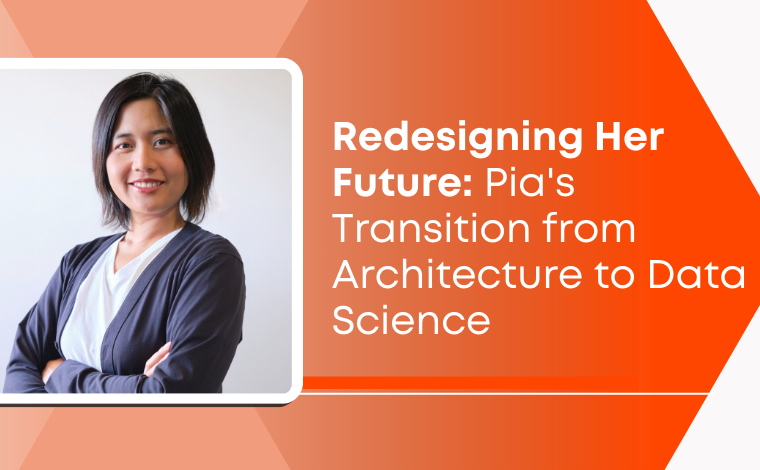From Engineering to Data Science: Simon’s Journey into Tech

Stay Informed With Our Weekly Newsletter
Receive crucial updates on the ever-evolving landscape of technology and innovation.
Simon Leighton’s journey into data science was born out of a passion for understanding how things work.
Originally from New Zealand, Simon worked as an engineer in the construction industry in various locations around the globe before deciding to enter data science.
We caught up with Simon recently, keen to learn about his decision to transition into data science and to discuss his experience with the Institute of Data’s Data Science & AI Program.
Read on to learn how the program helped Simon land his current role and his advice for those considering a career in this ever-evolving field.
1. Simon, please tell us a bit about yourself.
I’m originally from New Zealand. We were lucky to have a beach house in Coromandel, and I’ve been going to Hahei Beach my whole life, which has led to a passion for boating, fishing, and scuba diving.
I’m also massively into motorsport. I’m a big fan of Formula One. I like the speed but also learning about the intricacy of the mechanics involved.
I currently live in Miami, where there is a lot of wealth on display. So I get to see plenty of Ferraris, McLarens, and Lamborghinis, as well as incredible boats — that’s pretty cool.
I’ve been interested in computers my whole life. I like gaming and using computers to problem-solve.
[su_quote]I’ve always been naturally curious about how things work, and have a passion for learning.[/su_quote]I like understanding how things work, and I find coding to be a tool for achieving that understanding.
[su_quote]I also like that data science as a career is future-proofed. Everything is moving towards data, especially big data. It’s absolutely everywhere.[/su_quote]2. What did you do before you studied Data Science & AI with the Institute of Data?
I got into engineering because I wanted to design America’s Cup boats, which ties into my love of boating and things that go fast.
After my studies, I did a lot of forensic engineering, which involves investigating why buildings fail.
I moved on to designing schools, apartments, buildings and very high-end housing.
After working as engineers in New Zealand for 10 years, we moved to Melbourne for work.
We lived there for four years before moving again, this time to Dubai.
I was hoping to work on some big construction projects, but unfortunately, this was around when COVID hit.
It was tough not to be able to get out and meet people, and the job climate was challenging.
It was at this time that I began considering a career change.
3. Was that when you decided to study data science?
Well, I’ve always been interested in maths and science and using those disciplines for problem-solving.
[su_quote]What appeals to me about data science is that it allows me to employ those problem-solving skills to a rapidly growing and exciting new industry.[/su_quote]I decided to study Data Science & AI with the Institute of Data because I wanted to get an accreditation – a qualification from a program that had more weight behind it.
Another factor in my decision was the Institute of Data‘s partnership with the Auckland University of Technology (AUT).
[su_quote]I appreciated that the program was aligned with a familiar tertiary provider rather than just some random online course.[/su_quote]I looked at the fees as an investment in my happiness.
4. Which elements of the program stood out to you?
I chose the three-month option and really enjoyed the full-time aspect of it.
I had some background in coding, so I found the first few modules interesting but not too challenging.
I had to take some time off when we were about halfway through. The program had increased in intensity around this time, and I felt quite under pressure.
The trainers were understanding and helped me get back on track. Honestly, I wish I’d reached out to them more.
[su_quote]I’m the kind of person that enjoys figuring things out by myself, but the trainers were amazing when I asked them for help.[/su_quote]The whole program was really good. My only regret is that I didn’t do it sooner.
Towards the end of the program, I ended up completing my Capstone project in Sydney, where I met up with one of our classmates. We became good friends, so the program has also been great from a social and networking aspect too.
Although I was quite nervous about completing it, the Capstone project was an excellent exercise. The professional presentation practice and the feedback that we were given during the Capstone experience were invaluable.
I feel like the benefits I’ve gained have exceeded completing the program itself.
Connecting with others and gaining confidence through the presentation skills component of the program has been hugely beneficial to me.
Also, the trainers’ ability to communicate and apply complex ideas in practical contexts was unreal.
[su_quote]Our cohort had the full spectrum of capabilities and experience. The trainer taught the material at all levels, which was very impressive.[/su_quote]I also found the Institute of Data’s Job Support Program a really positive experience. They helped me put together my CV and cover letter, supported us with useful job-hunting tips, and helped me with interview preparation.
5. That’s great to hear. Can you tell us about your current role?
[su_quote]I’m really happy in my role as a Data Analyst.[/su_quote]It’s a flexible, approachable company based in New Zealand and the perfect introduction to the industry.
I’m in Miami now and work remotely, which I’ve enjoyed.
Still, I’m excited about the industry and looking at tech jobs in the US, as the time zone difference can make things challenging.
I’m excited that there will be a lot of data work available for somebody like myself now that I have some solid experience.
6. It’s great to hear you’re working in the Data Science Industry. What guidance would you give to someone applying for similar roles?
[su_quote]Making connections, whether through attending events or on social media and LinkedIn, is important.[/su_quote]Talking to people already in the industry is a huge resource and opens up avenues that can connect you with interesting organisations.
Send them (people in the industry) a message, try chatting, and get some tips on gaining entry. Ultimately, the majority of people are friendly and want to help.
It might take a little bit of time. It just takes a bit of perseverance.
[su_quote]If you’re interested in joining the Data Science Industry but unsure if it is for you, it’s always a good idea to talk to people in the industry.[/su_quote]Ask what they like about their roles and about working in the industry.
Get in touch with the Institute of Data. They offer a free consultation for those interested in their programs.
When I was researching the program, I spoke to a consultant and asked a lot of questions about how it was run and the job outcomes.
[su_quote]To be honest, I regret not doing it sooner. It’s completely changed my outlook, my mentality, and the way I see my future. I think it’s really exciting.[/su_quote]7. That is great advice. What are you most looking forward to in regards to your career?
In five years, I would like to be combining my engineering knowledge with what I am learning in the data industry. Maybe developing some new technologies for the New Zealand and Australian market.
I’d like to be on some big projects and be involved in developing the machine learning side of things.
In the future, I’d like to start a company that combines engineering and data to create programs that help engineers design spaces.
8. Is there anything else you would like to share?
For anyone taking the program, be sure to contact the student services team early because they can get booked up fast.
If you reach out early on, you can build a relationship so they can understand your needs and what you want from the program.
Things are rapidly developing in data science.
It’s mind-blowing and hugely exciting, and I’m looking forward to seeing where it will take me.
Conclusion
If you’d like to learn more about our Data Science & AI Programs, you can download a Course Outline to find out what goes into our 3-month full-time, and, 6-month part-time bootcamps.
You can connect with Simon Leighton and follow his professional journey on LinkedIn.




